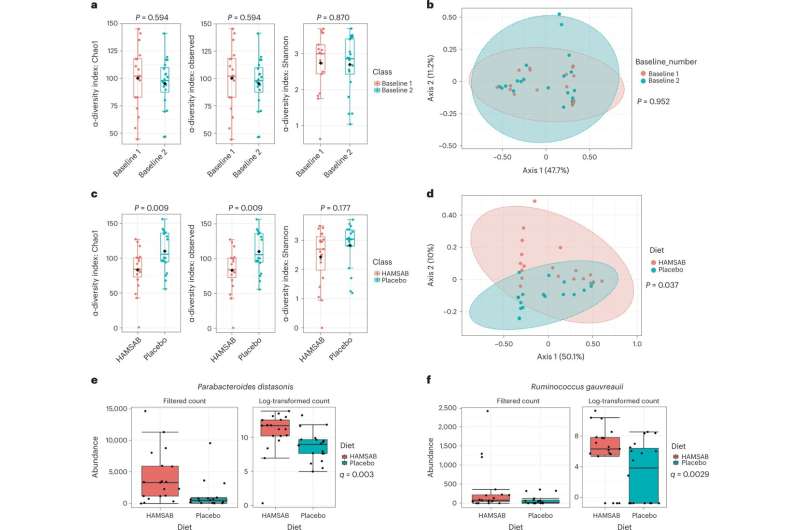This article has been reviewed according to Science X's editorial process and policies. Editors have highlighted the following attributes while ensuring the content's credibility:
fact-checked
trusted source
proofread
Hypertensives may benefit from gut microbial metabolites, study finds

Hypertension, or high blood pressure, is a leading cause of death worldwide.
Four out of five hypertensive patients have uncontrolled blood pressure despite clinical and lifestyle therapy, suggesting new approaches are needed.
Over the past decade, experimental research has shown that gut microbiota and the substances they produce regulate blood pressure.
Dietary fiber, especially fermentable fiber, is digested by commensal gut microorganisms in the large intestine, modulating the gut microbiota and releasing substances called short-chain fatty acids (SCFAs), such as acetate and butyrate.
SCFAs regulate host physiology through bioactive pathways. In animal models, SCFA administration decreases blood pressure.
Previous studies led by Associate Professor Francine Marques from the Monash University School of Biological Sciences had found that acetate and butyrate supplementation lower blood pressure in hypertension models.
A new randomized clinical trial led by Associate Professor Marques, published Jan. 9 in Nature Cardiovascular Research, shows that SCFAs can also lower blood pressure of hypertensive patients.
"These metabolites have untapped translational potential," said Associate Professor Marques.
"Our previous studies found that acetate and butyrate, two microbial SCFAs, decreased blood pressure in mice. However, this method would require patients to ingest SCFAs 24/7, making it unsuitable for humans."
Thus, in the clinical trial, her research team used acetylated and butyrylated high amylose maize (HAMSAB), a fermentable fiber that produces large quantities of acetate and butyrate.
They recruited 20 untreated hypertensives for a 3-week double-blind, placebo-controlled, randomized cross-over phase II trial of HAMSAB to lower blood pressure.
The team assessed home and 24-hour blood pressure, plasma SCFAs, fecal microbiota, gastrointestinal transit, pH, and cytokines.
"In HAMSAB-treated hypertensives, 24-hour systolic blood pressure dropped 6.1 mmHg," Associate Professor Marques said. "This is equivalent to one blood pressure lowering drug and has important clinical implications."
Further analysis showed that plasma acetate and butyrate were considerably higher after the three-week HAMSAB intervention than the placebo arm. "The levels of SCFAs we were able to achieve with HAMSAB were remarkable and higher than can be achieved with diet alone," said Dr. Hamdi Jama, the lead author of the study.
HAMSAB also altered gut microbial makeup, favoring acetate- and butyrate-producing bacteria like Ruminococcus species.
"Our clinical trial shows acetate and butyrate, gut microbial metabolites, reduce blood pressure in patients, suggesting medicinal potential," Dr. Jama said.
"This supports clinical and experimental findings that gut microbiota alterations, particularly SCFA-producer depletion, may predate hypertension," Associate Professor Marques said.
"Thus, fermentable fibers like HAMSAB may re-establish gut microbial communities that produce SCFAs. This approach may aid in the reduction of rates of hypertension and cardiovascular disease worldwide."
Associate Professor Marques said HAMSAB lowers blood pressure, but multi-center trials with larger samples and longer follow-up could provide more conclusive results.
More information: Hamdi A. Jama et al, Prebiotic intervention with HAMSAB in untreated essential hypertensive patients assessed in a phase II randomized trial, Nature Cardiovascular Research (2023). DOI: 10.1038/s44161-022-00197-4





















